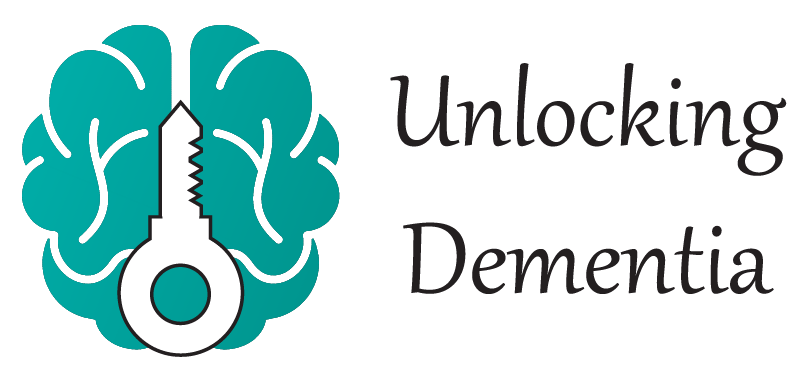According to Webster’s Dictionary, dementia is “a usually progressive condition (such as Alzheimer’s disease) marked by the development of multiple cognitive deficits (such as memory impairment aphasia, and the inability to plan and initiate complex behavior)” or …dementia is diagnosed only when both memory and another cognitive function are each affected severely enough to interfere with a person’s ability to carry out routine daily activities (per the Journal of the American Medical Association)” The Journal of the American Medical Association
Because of dementia’s progression, losing a higher level of functioning is one of the most obvious tragedies of dementia. The loss of jobs or livelihood takes time, but the eventual outcome is the loss of the person they once were. Family members and caregivers remember the person they once were and grieve for the person they are now. Dementia robs life and long-term joy from all those impacted by this disease. (caregiver family grief)
Dementia is the general name of a cognitive impairment disease. Many symptoms and characteristics between different dementia conditions are similar, but there are differences that often can help identify the condition. Medical procedures can ‘see’ the deterioration of the brain, but accurately determining the type of dementia is usually completed post-mortem.
Dementia is also defined as a condition or syndrome and not a disease. The term “major neurocognitive disorder” is the typical term used by the medical community to define dementia. According to the Journal of the American Medical Association, dementia is often diagnosed only when both memory and other cognitive function are affected severely enough to impact a person’s ability to perform routine daily activities. (cognitive, brain function, memory storage, normal vs not-normal)
There are various types of dementia including the most common Alzheimer’s, Vascular, Lewy bodies, and frontotemporal. Other diseases such as Parkinson’s, Huntington’s, Creutzfeld-Jakob disease and HIV exhibit symptoms that may point to dementia. Post-traumatic Stress Disorder (PTSD) and traumatic brain injuries (TBI) also can also exhibit similar symptoms making the diagnosis of dementia more difficult. (TBI PTSD Parkinson huntington creutzfeld-jakob hiv)
Some diseases and medical conditions can have dementia-like symptoms, but those diseases can often be treatable or reversible. Infections, like urinary infections, sleep disorders, and hormonal diseases can mimic dementia. Depression, negative reactions to medications, and delirium can also be misdiagnosed or dismissed as signs of aging. (Urinary sleep disorders hormonal depression medicine delirium)
Alzheimer’s is the most common type of dementia and the term is often used to identify any dementia. In a brain with Alzheimer’s, abnormal clusters of protein fragments, called plaques, build up between nerve cells. As those nerve cells begin to die or have died, twisted strands of another protein build up to form knots or tangles in and around the cells. Plaques and tangles represent damage both inside and outside of brain cells. A brain with Alzheimer’s has fewer nerve cells and synapses thereby causing some of the obvious changes in the person living with dementia and eventually a person with little or no cognitive functions. (Alzheimer’s)
Vascular and Lewy Bodies dementias are the next two most commonly diagnosed types of dementia. (vascular Lewy bodies)
Vascular dementia is caused by the degeneration of the vascular system within the brain. Diseased brain blood vessels are ineffective in getting blood to brain cells and deprive affected brain cells of getting necessary oxygen and nutrients. Strokes can cause abnormal neurological symptoms that indicate damage and death to specialized brain areas. Often a person with diminished blood flow to the brain exhibits symptoms that can aid in diagnosing Vascular Dementia. (Vascular Dementia)
Dementia with Lewy Bodies (LBD) often exhibits cognitive problems and muscle symptoms. Lewy Bodies Dementia (LBD) is harder to diagnose because symptoms may be confused with other diseases. (Table 2) This type of dementia causes abnormal proteins in nerve cells which impairs normal functioning. Both cognitive problems and muscle symptoms exhibit at the same time, or within a short time of each other. (Lewy Bodies Dementia)
Frontotemporal Degeneration (FTD) is less common than other forms of dementia and frequently is diagnosed between the ages of 45 and 50. Often FTD is confused with other types of neurological disorders because it impacts language, personality, and behavior. These obvious changes can be misinterpreted as a psychiatric problem or early Alzheimer’s onset. (Frontotemporal Degeneration frontotemporal lobar)
Diagnosis
Dementia has various stages, depending upon the source of information. Most medical diagnoses characterize dementia in three stages: mild, moderate, and severe. Reisberg’s system uses seven stages from no impairment to severe decline to identify dementia (Reisberg). Positive Approach to Care uses a 5-step identification for the level of dementia (Positive Approach to Care). Each of them uses labels to help identify the symptoms of that stage and the personality and functionality level of the person living with dementia. (Diagnosis)
Characteristics
Each defined type of dementia also has specific and common characteristics between the various types of dementia. Table 1 identifies the stages of dementia. Table 2 identifies the characteristics and symptoms of the different types of dementia.
